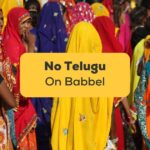Every day, a large number of people in Serbia use Serbian Slang expressions, most often in the simple conversations, they have with friends, family, or acquaintances. Not many of them are aware of the large number of words that belong to jargon.
If you have the “special someone” to talk on Serbian or plan to visit Serbia in the near future, you should definitely learn some Serbian slang. That way, you don’t need to worry about the locals not understanding you.
Below you can find my suggestions on the phrases you should learn. Most of them will make you laugh, help you communicate to locals without hiccups, and make your stay in Serbia more pleasant. What you are waiting for? Let’s get started!
Serbian Slangs You Need To Learn
Bre
As a foreigner in Serbia, the first word you will most probably learn to say is the famous “bre”. You will hear it everywhere you go and every time two Serbian people are talking to each other. They (subconsciously) put it at the end of almost every sentence.
This Serbian slang word is always present, regardless of the topic or speaker. So, you shouldn’t be surprised when hear that “bre” is on the top of the list of most frequently used words in the Serbian language.
The popular “bre”, with its vibrant “R” or long “E”, doesn’t have any actual meaning but is usually used to draw attention to something. So, when you hear the word “BRE”, you should KNOW that some crazy thing is about to happen or an interesting story will be told.
Brate (Prijatelj Or Drug)
Serbians are very friendly and communicative people. In their country, you will certainly make many new friends. I can guarantee you that! For this reason, the word “brate”, which means “brother” and is mostly used like the English “bro”, is another word that you’ll hear frequently.
From its original meaning of brother or someone Serbians consider a good friend to a catch-phrase they would say when you’re angry or annoyed, “brate” is a vocab staple.
Serbian Slang About Money
When we are talking about money, it’s usually referred to as pare, lova, keš, šuške, or something along these lines. When someone begins to give a lot of money all of a sudden, Serbians are likely to say “otvorio se” (“otvorila se” for female) which literally means “he opened himself”.
So, if you give a lot of money remorselessly, people in Serbia will say “rasipaš se” which means “ you’re wasting yourself ”. Or if you pay something more than it is worth, they’ll say that you were “ošišan”. When you translate it literally, it means that your hair has been cut off.
Jargon Young People Often Use
If you are young and hang out with your buddies, you’re likely to say “blejimo”. It roughly means that you’re bleating, but in a context, it means that you’re hanging out with your friends. This is the most common slang in Belgrade (the capital of Serbia).
When you’re going to the bathroom/toilet, you are free to say that you’re going to a “klonja”. Klonja is a jargon word for the toilet.
When someone is sad, you’re likely to say that they are in “bedak”. “Beda” is misery, and “bedak” is a state of misery.
You will often hear young people referring to their parents as “ćale” and “keva”. “Ćale” means father and “keva” is a mother. It was considered to be very rude until a few years ago and is now broadly used.
Ložiti se
When you can’t be cool about something or someone, people are likely to say “ložiš se” which literally means “you are stoking yourself”. So, you’re “ložana” (someone who is stoking them self). A synonym to” ložiti se” can be “paliti se”, which means “to fire up”, and a person who is “pali se” is called “paljevina”.
These verbs often mean that someone is in love with someone, or even more accurately, feels sexual attraction towards someone. When we talk about love stuff, “smuvali se” is a very common expression for two people getting into a relationship. Thus, “muvati se” (which literally translates to moving around) means that people are flirting.
Ukrasti
So, for the verb to “ukrasti” (to steal), there are these words that can be used: apiti, apnuti, capnuti, ćapiti, ćapnuti, ‘ćornuti, deknuti, dići, drmnuti, drpiti, ćornuti, gepiti, išanirati, klepiti, klepnuti, lapiti, lapnuti, maknuti, marnuti, maznuti, oladiti, odraditi, pokupiti, poplašiti, smotati, uraditi, ušanirati, zapaliti, zdipiti, zviznuti, etc.
As you can see, the Serbian language can be extremely rich in synonyms and slang expressions. Because of that, many people think it’s hard to learn.
Serbian Slang To Describing A Person
It is interesting that when using slang words to describe a person, young people in Serbia increasingly use terms from the animal world. Thus, a beautiful guy will be a “mačor” or “macan” (male cat) while a girl is a “mačka” (cat), “riba” (fish)… A beautiful girl can also be a “avion” (plane), while for someone whose appearance someone does not like, you can often hear that she is “Gabor”, “krampača”, or “krava”. These last 3 are extremely rude and I think no one should use them.
However, you can hear some of them if you are friends with young people – they sometimes don’t think about other people’s feelings.
“Lupaš” or “lupetaš” are words you can hear when someone is saying something stupid or something that is not true. In literal translation, it means they’re banging/pounding.
When someone doesn’t realize you’re pulling a joke on them, you say “primio si se”, which roughly means “you’ve gotten to yourself”. Well, not a literal translation, but it’s impossible to translate “od reči do reči” word for word.
A lot of odd phrases like this occur in the Serbian language. Well, we all know about the good old “Boli me uvo” (uvo – ear or dupe – ass) or some other parts of the body which I will not talk about now. The funny thing about Serbians is that a lot of things tend to hurt them but they don’t care.
Learn Serbian With The Ling App
There are many other examples of Serbian Slang I didn’t mention this time. Well, A LOT of them. In fact, with this slang, you may not even have yourself covered for a whole day worth of conversation in Serbian, so be prepared for more! Until then, you can use the Ling app from Simya solutions and learn some cool and useful words in the Serbian language.















